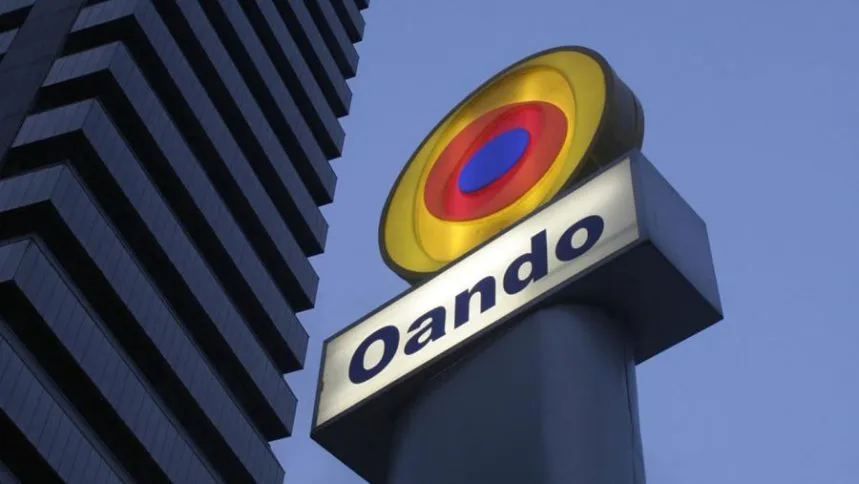Oil driller Oando requires at least N3 trillion to clear its debts and inject the rest of the cash into its operation to stand a chance of staying in business, according to its latest audited accounts for the year ended 2022.
The most pressing of its obligations is the sum of N686.6 billion (84.1 per cent of outstanding borrowings), which fell due within the last twelve months of the period under review, and lenders now need to be paid as soon as possible.
Oando, listed in Lagos and Johannesburg, saw the arrears it owed trade partners and other payables climb by more than half to N705.8 billion, causing liabilities to surge past assets and leaving shareholders’ funds in the red.
“A material uncertainty, therefore, exists that may cast significant doubt on the company’s and group’s ability to continue as a going concern, thereby resulting in the company’s and group’s inability to realise the assets and settle the liabilities in the ordinary course of business at the amounts recorded in these consolidated and separate financial statements,” said Independent auditor BDO Professional Services.
The company shares had plunged by 9.8 per cent in Lagos at 15:40 WAT on Tuesday, less than 24 hours after the earnings report was released.
“It is a major sign of business collapse, meaning that their liabilities are far more than the assets,” Folorunso Adeleye, team lead internal audit and compliance at Lagos-based commercial printing company Superflux International, said, referring to the independent auditor’s comment.
“Even at the points of liquidation, if the assets are disposed of, it may not cover the commitments.”
Management has lined up a long list of grand but unlikely plans to rescue the company’s precarious financial position.
On top of the pile is a fresh debt of N1 trillion that it expects to source in the form of bonds from investors to partly close the N3 trillion funding gap by 32 percent.
“Management has progressed the initiative to mitigate the ongoing concern uncertainties on profitability, working capital deficiency, and negative shareholder’s fund by appointing a rating agency to provide a rating analysis of the bond, which started in 2022,” Oando said.
Credit scores, which the proposed bond needs to convince potential investors of its creditworthiness, are not likely to turn out favourable for the company given its history of payment defaults, most of which are currently responsible for the sticky debts in its books.
Accrued but unpaid interest on overdue short-term borrowings alone comes to N154.6 billion
“The repayment of the outstanding principal amounts and coupon will be made from cash flows from operations arising from efficient operatorship of the NAOC acquisition,” the energy company stated in the earnings report.
Pinning hopes of improved performance metrics as fundamental as profitability and debt repayment on NAOC’s acquisition, a controversial asset purchase deal reached with Italian oil giant Eni in 2023, could mean Oando’s funding plan for this year is close to falling apart.
Eni entered a pact with Oando last September to sell its local onshore unit NAOC—Nigeria Agip Oil Company in total—in the so-named OML 60–63, a joint venture in which NNPC Exploration and Production Limited, a subsidiary of state-owned NNPC Limited (NNPCL), holds a 60 percent stake.
NNPCL said Eni did not secure its consent before agreeing to the deal with Oando and has described the transaction as “a grave breach” of its joint operating agreement with Eni, which accords the state oil company a pre-emption right on the joint venture’s shares, according to a Reuters report, citing a letter seen by the news agency.
Ever since then, the NAOC transaction has stalled.
The duo last March tabled N37.5 billion before other shareholders bought their holding at a 58 percent premium above the market price.
That transaction is at the stage of getting a court order to launch a scheme of arrangement with shareholders.
“Management has additional plans to address the uncovered 68% of the projected funding gap through a combination of advances from its existing major shareholders and additional equities,” Oando said in the financial report.
If the proposed advances from the exiting major shareholders are convertible debts, which often allow creditors to convert debt to equity in case of default, it could give Tinubu and Boyo another option of acquiring Oando fully, both of them being the core shareholders, if the plan to buy other shareholders fails.
Oando will also consider “the issuance of stock instead of cash for payment for services to vendors until profit and healthy cash flows from profitable operations may be achieved,” according to the earnings report.



